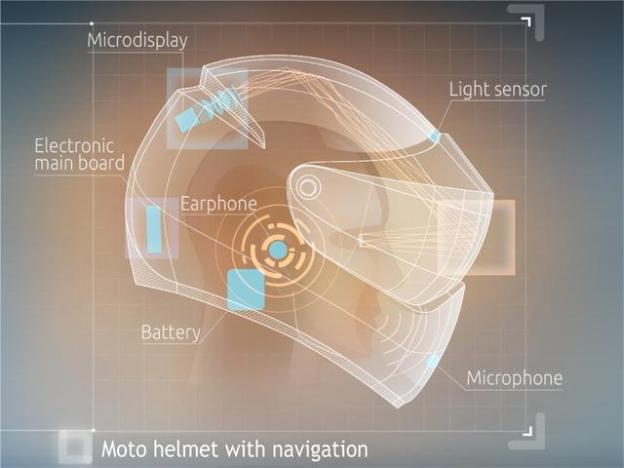
We had to figure it was only a matter of time before some other exciting ideas rolled out of the kind of technology that drives Google Glass.
When it comes to wheels, it look likes one of the first will fall in the hands of motorcyclists.
According to a CNET report, a Moscow-based company called LiveMap, is developing a new helmet for bikers that features a head-mounted display, built in navigation and Siri-like voice recognition.
The headgear will feature a translucent, color display that’s projected on the visor in the center of the field of vision and a custom user interface. The helmet’s display features a light sensor for adjusting image brightness based on external light conditions as well as an accelerometer, gyroscope, and digital compass for tracking head movements, according to CNET.
The CNET report notes that unlike visor mounted heads up displays, LiveMap is fully integrated within the helmet and layers information in real space,
The helmet, which features the same type of augmented-reality technology as google glass, will be offered as an English only Android based headgear at launch.

LiveMap essentially takes the concept much, much further.
Cost? Likely $2,000, or $1,500 for what the company calls “early birds,” according to CNET.
But I wouldn’t get too hyped about the high-tech headgear just yet. Apparently, LiveMap still needs to secure additional funding for the venture to mass produce the helmets with plans to begin sales in late 2014.
Still, the concept gives us a good idea of where augmented-reality can take us down the road.
Photo Source: CNET


